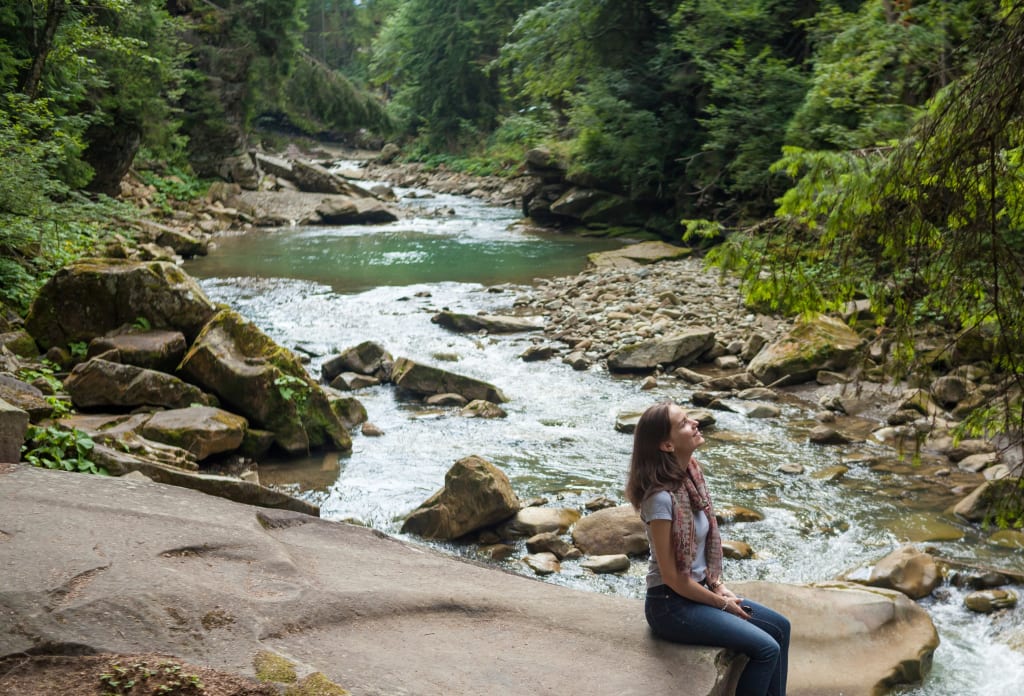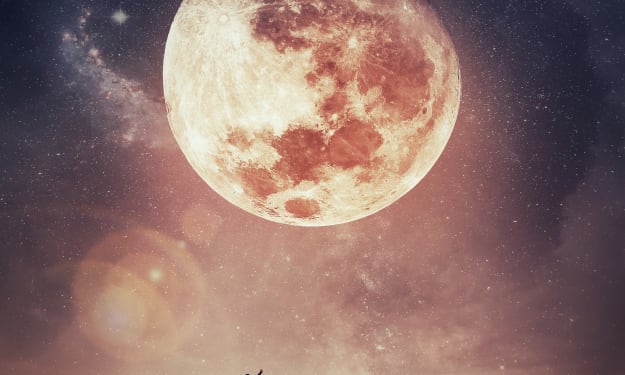The Reality in Which We Live
Impressions of Freedom from Nine to Ninety

Title: Attributed to a quote by Volodymyr Zelenskyy in his address to US Congress, 2022
Freedom is the ability to act or change without constraint or to possess the power and resources to fulfill one's purposes. (Wikipedia)
Freedom is strangely ephemeral. It is something like breathing; one only becomes acutely aware of its importance when one is choking.
William Simon
I watched the river flow by, circling me and the boulder, where I rest. My rock, I call it. This is my quiet place. Sitting on my perch in the middle of the San Juan River, surrounded by Colorado Mountain peaks. Rippling waters. Crisp scents of snow graced pine. Warm spice and dark roast just downstream, compliments of The Root House Coffee Shop.
I reflect on my own freedom and how I might structure this piece of writing. What does freedom mean to me? Just reflecting on the subject points to my own abundant access to freedom. Free to write. Free to just be here in a place that nurtures me, allowing inspirations to happen. Free to choose healthy foods. Free to travel. Free to warm my living space to a comfortable level. I already know what freedom means to me. I am most curious, however, to ask around. To find out what others might have to say on the subject.
So, rather than drone on about my own impressions, I decide to do some information gathering. I am eager to approach a diverse cross section of ages and cultures. What can I learn from them?
My youngest respondent was just 10 years old. The eldest ninety. It was interesting to observe that save for one, those responding talked more about what freedom isn’t, and what loss of freedom means in relation to their day to day lives. They spoke most candidly about how oppression and limitation impacts them. Fear of losing freedoms was also a prevalent theme among all the responses.
Young adult perspectives were similar to our youngest responders.
“Freedom is when you get out and do whatever you want, and no one can stop you from doing it. You could hang out with your friends.” So says one 10-year-old. “You can choose who you want to be and what to wear.”
A young man, eighteen, living on his own for the first time, expresses the need for no restraints, no burdens, no errands, no one to worry about and being completely stress free.
One high school student seemed eager for an opportunity to vent about the legal requirement for all youth to attend school until a certain age. Seventeen in the State of Colorado.
“This place is just like a prison. We move like herds of cattle from one place to another inside a concrete building. We go where they tell us to go and what time to go there and how long to stay. We are fed what they have within the budget that they can spend. We are taught what the curriculum says we need to learn.”
The elder respondents, between the age of 80 and 90, all spoke in terms of fear of having freedoms taken away, by the law or by decisions made on their behalf, by their families and in some cases, institutions. Freedom to live where they choose rather than being moved to assisted living or a nursing home, losing their driver’s licenses and losing control over their physical bodies and mental capacity were not surprisingly, common and deep concerns.
“Freedom to just be,” was a unique perspective offered by one retiree. She went on to offer some thoughts on how we might achieve the level of freedom needed to reach that state of being. She spoke of transcending social pressures to “do” what others think we need to do.
A prescribing psychologist, having practiced for over 30 years, spoke about the physical noise from the outside and the pressures of our physical lives, too numerous to count. These outside influences typically translate into incessant thoughts, the noise that can torture us from the inside. She pointed out the distinction between constraints on our freedom imposed by society, and those limitations we place on ourselves, self-made prisons that grow from within.
“I became a psychologist,” she said, “so I might help others break the bondage of oppression and become free from self-imposed constraints.”
She went on to explain that anxiety and depression is now so prevalent in our society, that the entire population seems on its way to a hopeless place from which each may or may not recover.
Just one person among the dozen or so interviewed, a female in her sixty’s, mentioned freedom of religion and worship.
“I am grateful that I was born in America. I have freedom to worship God and freedom of speech. There are times when I feel my freedom is very limited because of the color of my skin. Nevertheless, because I know who I am, I am free. Freedom is priceless.”
She went on to say that since she can follow her religious beliefs, which in her case is following Christ, that this relationship fills in the gaps of any freedom she may perceive lost from time to time.
Except for the children and young adults, nearly all who responded to the question, what does freedom mean to you? first expressed some level of guilt in even answering this question. When considering the big picture, each felt that what they were about to express about lack of freedom might seem trivial and insensitive to others across the globe who lack the most basic choices, lack access to many of the basic physical necessities, and do not have the opportunity to live in peace and security in a place where they can call home. The great majority talked about this as the lead into their own perspective about freedoms and lack thereof.
Few responses came with a political slant, but one that did was from a computer scientist in his mid-forties. He stressed the importance of being able to reap what we sow without interference. He expressed concern that hard work may not always be rewarded, depending on the political climate in the US, in the case of more socialist policies such as universal health care and potential new tax laws.
Freedom of speech was a prevalent concern for most, and several responding expressed that we have fewer freedoms than we think we have.
“It seems that we no longer have the freedom in this country to express an opinion without fear of retribution." This respondent was explaining that civilized discourse for the sake of disagreement has become a thing of the past." It has come down to “us and them” rather than respectful dialogue for the sake of learning something.”
As I listened without judgement to this variety of perspectives, what was true for all was the enthusiasm with which each shared his or her views. It was like a tempest in a tea pot. Repressed feelings and thoughts that had been stuffed down for a while now.
From a compilation of the thoughts and feelings expressed about freedom by a variety of ages and cultures, I drew the conclusion that achieving freedom or experiencing the lack of that freedom, closely mirrors Maslow’s Hierarchy of Needs.
Developed by Abraham Maslow in 1943, the Hierarchy of Needs is also called The Theory of Human Motivation. This pyramid of human requirements shows us that our opportunities to go through appropriate stages of human growth directly correlates with how and if our external needs are met. Maslow described various needs and used the term physiological needs that must be satisfied before any growth can happen, such as access to food, water, shelter, and safety. Only when these basic needs are met, can we move to satisfy the psychological needs of belongingness and love, esteem, self-actualization, and self-transcendence. To summarize, if we must occupy ourselves to meet our basic needs for food, water and shelter, we are incapable of growing into a more evolved human intellectually, spiritually and capable of love.
From what people said, young and old, about our freedoms, it seems to me that there is also a similar hierarchy of freedom, where the same principles apply. The higher we find ourselves positioned on the hierarchy of human needs, the more freedom we can draw into our lives. In other words, we must satisfy our most basic needs to be capable of inviting and pursuing freedom.
I wondered, though, if it is actually true that the freedom to love is as Maslow positioned it. Only loving fully after we have satisfied our more basic needs. So, I posed a final question I to my respondents:
“In any and all situations, no matter where we fall in satisfying the human hierarchy of needs, are we always free to love?”
The consensus was that ideally, yes. But often, no. I turned to the wisdom and writings of one of my own life heroes, Elie Wiesel, to help me clarify my own perspective on the freedom to love. In his writings, Wiesel examines his capacity to choose love and gratitude over anger and resignation under the most extreme circumstances, years in a concentration camp in his teens and later in life, facing dire health challenges.
Can we love when we are thirsty with no source of water in sight? When we are hungry and far removed from all food sources? When bombs are exploding around us, destroying our homes, taking our sons, daughters, mothers, fathers, and neighbors away from us forever?
In his own experience, Wiesel says, yes. He says that choosing love and gratitude is always a choice we can make. The only question is whether we can find the fortitude to make that choice and how long it takes us to move to that remarkable place inside of us.
Throughout my conversations with all the generous people who gave their time, their heartfelt responses, I tried to remain impartial. I just listened and made notes that I could share with you, the reader. But now, back in my nurturing space, sitting on my rock, embraced by the strength of the mountains, the miraculous force of the river, an eagle soaring overhead, I find that I have a definite opinion of my own.
For me, it all seems to boil down to responsibility. There are certain life circumstances that may be beyond our control. But within the gift of the human experience, we are being called to climb the pyramid the very best we can. Because the higher we climb, the more basic needs we can satisfy, the more freedom we have, not just to manifest what we want for ourselves, but to do more for others who may be struggling. For me, that’s what freedom is all about. The freedom to try.
About the Creator
Sändra Alexander
Sandra has self- published several non fiction titles. She holds a Bachelor's degree in Literary Journalism and a Master's Degree in Spiritual Counseling. Sandra currently resides in a small mountain town in Southern Colorado.






Comments
There are no comments for this story
Be the first to respond and start the conversation.